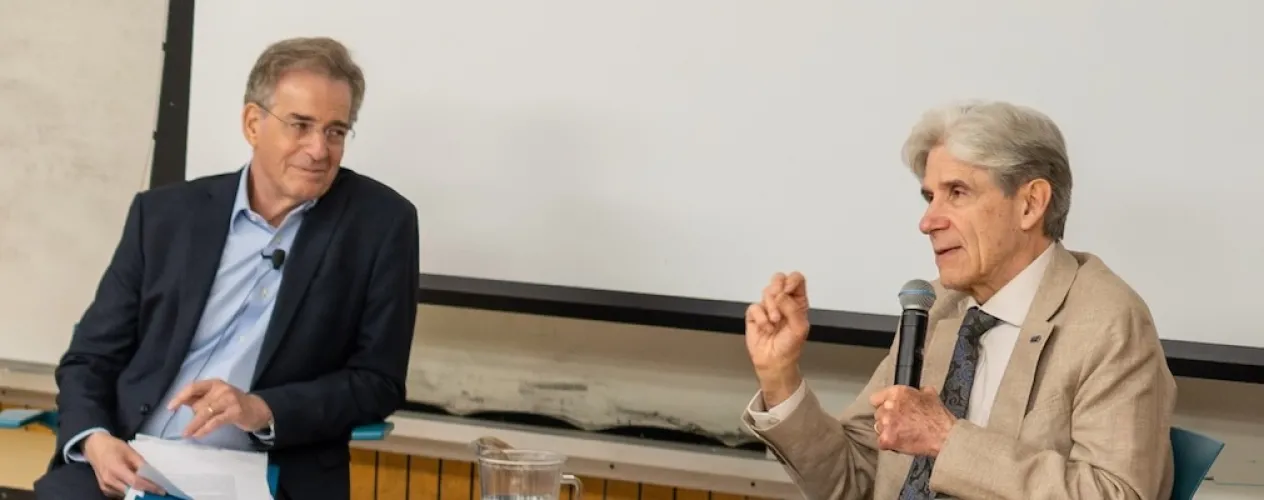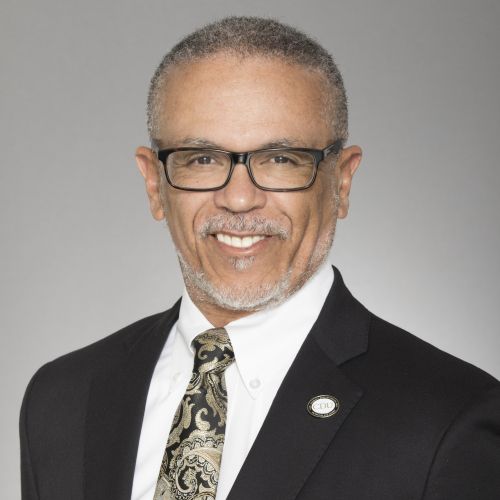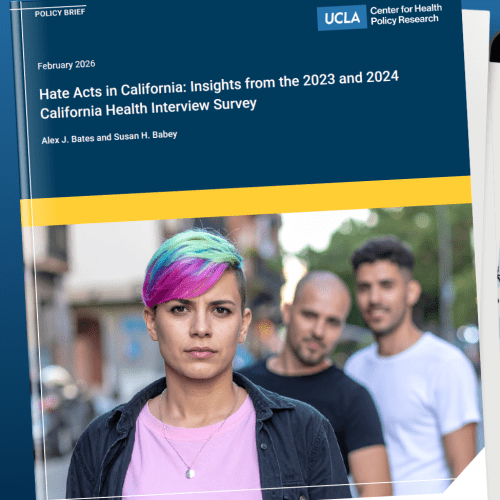Julio Frenk and UCLA: Building a better, more equitable future through public health
The chancellor — who is also a faculty member at the UCLA Fielding School of Public Health — discusses how he found his academic calling.

For many of us, a personal experience early in life plants the seed for our future. For Dr. Julio Frenk, UCLA’s chancellor and a pioneering public health researcher, that moment occurred when he was 16 and in his last summer of high school. Weighing whether he wanted to go on to study medicine — like his father, grandfather and great-grandfather — or anthropology, the Mexico City native decided to spend several months in an indigenous community in Chiapas, in southern Mexico, observing the work of a famous anthropologist.
One day, Frenk recalled, an older woman covered in blood came into the village, cradling her sick grandson in her arms. She had walked more than three hours to get care for the child and, on her journey, had fallen and injured her head. But there was no one to treat them. For Frenk, that was the turning point. He remembers thinking at the time, “I am going to serve these people.”
After receiving his M.D., he would go on to earn master’s degrees in public health and sociology and a joint doctorate in sociology and medical care organization.
His career would take him from leadership roles with the World Health Organization in Geneva and Mexico’s National Institute of Public Health, developing regional and global health policies and education programs, to the pinnacle of government where, as Mexico’s federal secretary of health, he would succeed in expanding access to health care for more than 55 million uninsured people. Ultimately, Frenk would become dean of Harvard’s T.H. Chan School of Public Health and president of the University of Miami, where he achieved a dramatic turnaround of the university’s academic health system.
Through it all, the experience in Chiapas never left him. Public health presented an avenue by which he was able address, through his research and policy work, the inequalities he witnessed there. “I could deal not just with the consequences but also with the root causes of poverty and injustice underlying the plight of that woman and her grandson,” he said.
The importance of university-based public health research
Today, in addition to his role as chancellor, Frenk also holds an appointment as a distinguished professor in the department of health policy and management at UCLA’s prestigious Fielding School of Public Health.
“We are incredibly fortunate that Chancellor Frenk, an internationally renowned public health expert, is leading our university and has joined this school as a member of our faculty,” said the school’s dean, Ronald Brookmeyer.
“I’m very proud and very grateful to the faculty who voted to admit me as a faculty member, and I do hope very much to be part of the of the academic life of this institution,” said Frenk, who added that while his duties as chancellor are currently all-consuming, he would relish the opportunity to teach and continue his public health research at the school in the future.
In fact, one of the things that most attracted him to UCLA, the chancellor said, was the university’s mission of fostering health alongside education through the work of the UCLA Health system and the pursuit of public health research through the Fielding School — a mission that spotlights the synergistic multidisciplinary approach to scholarship that Frenk consistently promotes.
“Public health has always had the great advantage, in the university context, of being intrinsically interdisciplinary,” he said. “That’s because public health is not a discipline; it’s a convergence of disciplines around a purpose, which is to improve the health of the public.”
Public health: Society is our patient
At a recent session of his 38-event UCLA Connects: Listening Exercise series held at Fielding School, Frenk, who will officially be inaugurated on June 5, discussed with Brookmeyer and the school’s faculty and staff his thoughts on the role of public health, both at the university and in society at large.
“Public health is exactly like medicine, but the idea is that the entirety of society is your patient,” said Frenk. “I look at our field as taking in the whole of society — the local community, the national community and the global community. We diagnose the challenges to their health, and then we prescribe, through policies and the design of better systems, ways to take care of the health of these populations.”
Brookmeyer, a distinguished professor in the department of biostatistics, has led the Fielding School since 2018, including through the height of the COVID pandemic. Frenk similarly shepherded the University of Miami through that crisis. In their conversation, they discussed how the pandemic spotlighted the simultaneously local and global mission of their work.
“Public health illustrates this great concept: Everything is simultaneously global and local,” Frenk said. “There’s nothing more global than mobilizing the research community — in universities, industry and government — to develop a lifesaving vaccine for COVID, and yet there’s nothing more local than actually applying that science and putting those vaccines in people’s bodies to protect them.”
Brookmeyer also recognized the political and ideological polarization that emerged — both in public life and particularly around public health — during the pandemic and in its aftermath. “We are living in a time of unprecedented challenges and uncertainties for universities and for public health,” he said.
“It’s a huge challenge,” Frenk agreed. “The one thing we should not do is retreat. I think it’s a time to affirm what public health is and what it does. But our success is measured by the absence of an outcome; our essence is to prevent things before they happen, so no one sees when our surveillance and response systems function perfectly. We need to make the invisibility of successful public health visible — to show what can happen when we let our guard down.”
It’s a fight worth fighting, for everyone, but especially for young people, Frenk said. “We can't let young people lose trust in the future.”
For more about Chancellor Frenk and his inauguration as the seventh chancellor of the University of California, Los Angeles, see the UCLA Newsroom site.

